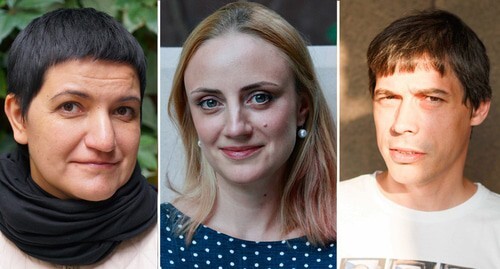
23 November 2021, 11:12
Law on foreign agents is a tool for eradicating dissent in Russia
Russian authorities are making use of the law on foreign agents for pressing and intimidating human rights media and organizations, and for silencing all those who criticize authorities, say the participants of the roundtable on the enforcement practice of the above law in Russia.
The "Caucasian Knot" has reported that on November 11, the Russia's Supreme Court (SC) notified the "International Memorial" that the General Prosecutor's Office (GPO) had filed a lawsuit to demanding liquidate the organization because of the absence of marking about the status of a foreign agent. The closure of the "Memorials" (of the Human Rights Centre (HRC) "Memorial" as well) will seriously harm the defence of human rights in Northern Caucasus, human rights activists, lawyers and journalists assert.
"The situation with the 'Memorial'* is one of the first or even the first compulsory liquidation of a non-commercial organization (NCO) in Russia solely based on the legislation on 'foreign agents', and a signal to other NCOs," Dmitry Gurin, a senior lawyer of the Human Rights Centre (HRC) "Memorial"*, has stated.
The law on foreign agents is not an attempt to find real foreign agents, but rather a method of pressure, intimidation and the fight against the dissent, said Dmitry Treschanin, an expert of the "Mediazona"*.
Olga Gnezdilova, a lawyer cooperating with the "Legal Initiative"*, said that the law on foreign agents is "a political programme aimed at silencing everyone who criticizes authorities." As a result, in a few years "we'll have no independent human rights organizations and media outlets," she has stated.
*The organizations, projects and mass media that have been included by the Russian Ministry of Justice (MoJ) into the register of non-commercial organizations performing the functions of a foreign agent.
This article was originally published on the Russian page of 24/7 Internet agency ‘Caucasian Knot’ on November 23, 2021 at 01:40 am MSK. To access the full text of the article, click here.
Author: The Caucasian Knot




